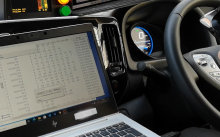ChatGPT has been in the news since it was released in November 2022. It has been the object of a lot of hype (a user-friendly combination of Google and Wikipedia; the ability to collate and draw conclusions from mountains of data) as well as disaster predictions (the end of traditional academic assignments).
But what can it do? And how do people see it? There are many questions that could be asked.
When given a complex prompt (more than just a request for factual information) ChatGPT will give a different response each time it is asked. Investigate the variations in response to the same prompt delivered repeatedly. Do the responses converge or diverge? You will need to generate several suitable prompts, and investigate the responses to each over an extended period of time.
Because it is designed to do nothing more than deliver plausible-sounding text, ChatGPT has (as yet) no concept of truth or factual accuracy. This means that it will sometimes produce factually inaccurate statements (‘hallucinations’) not derived from its training data (the Internet as at Summer 2021 – which probably contained more than a few inaccuracies, both accidental and deliberate). If these ‘hallucinations’ are uncritically added to the pool of (mis)information available to humanity, they will act like ‘fake news’ and pollute our data sources. How frequent are these hallucinations? Do they occur more frequently in some subject areas, and less frequently in others?
What do people think of ChatGPT? Does their opinion depend on age/gender/educational background…? Will it be a tool to make life easier? Or a threat to privacy? What evidence is there to support each of these two opposing positions, or any other position on ChatGPT?
Investigate how ChatGPT compares with Google Bard, Microsoft Bing (or any other easily available AI chatbot). On what sort of tasks do they perform differently, and how, and why? Are the differences significant/important? You may find it best to investigate and compare performance on a small number of tasks.



